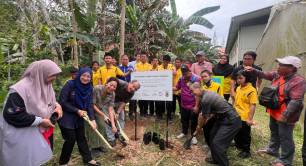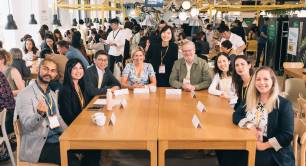Aquaponics, stingless bees and edible flowers: Malaysian Indigenous communities share stories of innovation
Small rural communities are discovering they can generate sustainable income without compromising their traditions and culture. Visitors from around the world discussed ideas at the Rural Social Enterprise Gathering 2025.
Anjelen Daransun’s decision to start chopping down the jungle around her home, in the foothills of Crocker Range of mountains in Malaysian Borneo, wasn't taken lightly.
The members of the Tiong Karanaan community, where Daransun lives, identify as Dusun, an Indigenous group. While large areas of the island of Borneo’s tropical forest – one of the most biodiverse ecosystems in the world – has been cleared, the Tiong Karanaan community has protected the area around the village from commercial logging.
But, as in many rural communities around the world, a steady stream of young people moving to the city meant the population of the village dropped to fewer than 25 families. They were in dire need of innovation to sustain their community, traditions and culture.
So Daransun started clearing trees. That was two years ago. Now, where thick jungle once stood, there’s an aquaponics farming system, where plants are grown in water, which in turn is used to raise fish, in a symbiotic closed-loop system that creates a natural, sustainable cycle that reduces water and fertiliser use.
Around the aquaponics system, the community grows an extensive range of plants and herbs, including cinnamon, turmeric and indigo, alongside fruit trees and vegetables.
In addition to growing food and herbs to be sold through the community’s social enterprise, Kokoriu, there is a seed bank to conserve traditional seeds and safeguard biodiversity and food heritage. Down the hill from the farm is the Korkoriu community centre, where visitors can buy traditional, hand-crafted products like bracelets and woven baskets, as well as dried herbs.
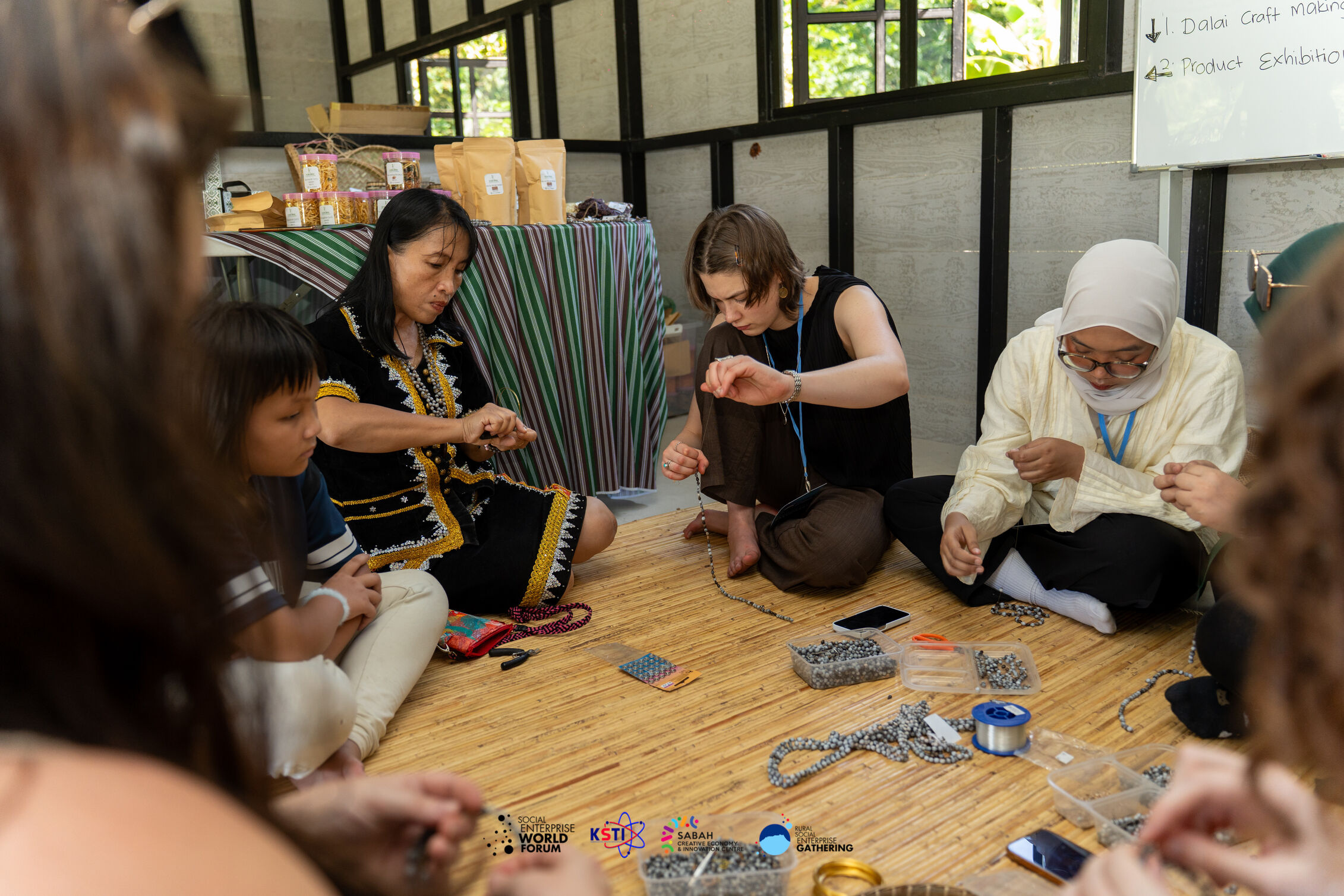
Speaking to Pioneers Post, Daransun said when she first proposed the idea of the social enterprise farm, the villagers were hesitant to break with their traditional way of life, which revolved around going into the jungle to source food.
Daransun said: “It was very challenging to change their mind. I just made a plan and started doing it myself around my house. We cleared this space and planted some medicinal plants and vegetables for our consumption. When we slowly cleared the area to make the aquaponics model, they saw they could earn some money and share the income.”
Now that business model is successfully up and running, and the villagers have seen it is possible to generate income without abandoning traditional culture and values, they are now working to launch an eco-tourism business.
The plan is for visitors to be accommodated in homestays, take part in food production and processing, and have the opportunity to enjoy hikes in the jungle and learn survival skills.
Of course, bringing tourism to traditional, rural communities isn’t straightforward. Examples are rife across the world of tourists causing harm to rural communities and the environment. Daransun said her community is aware of the risks but feels they can be managed.
“We discussed within the community what kind of tourism we want to attract. We only want visitors who want to learn. They want to appreciate the nature, not destroy it. We have a community protocol which they must follow during their visit.”
Infusing innovation into rural culture
Pioneers Post visited Kokoriu as part of the Rural Social Enterprise Gathering 2025, which took place from 31 October – 4 November. The event was co-hosted by the Social Enterprise World Forum and Sabah Creative Economy and Innovation Centre (SCENIC).
- Read more: Connecting isolated enterprises to unlock development: the Rural Social Enterprise Gathering 2025
SCENIC was established in 2019 by the state of Sabah’s Ministry of Science, Technology and Innovation to promote sustainable business activity via three focus areas: technology, innovation and the creative industries. Daransun said SCENIC had played a key role in the success of Kokoriu, providing training, funding and marketing.
As well as the visit to Kokoriu, delegates visited a range of social enterprises in the area, including herbs and edible flowers social enterprise Dunowongi, recycling and upcycling centre LJD Corporation, stingless bee farm Pace A Voi, and renewable energy social enterprise Tonibung.
More than 212 delegates from 11 countries attended the Rural Social Enterprise Gathering 2025, bringing ideas and insights from across the world to share with their Malaysian hosts.
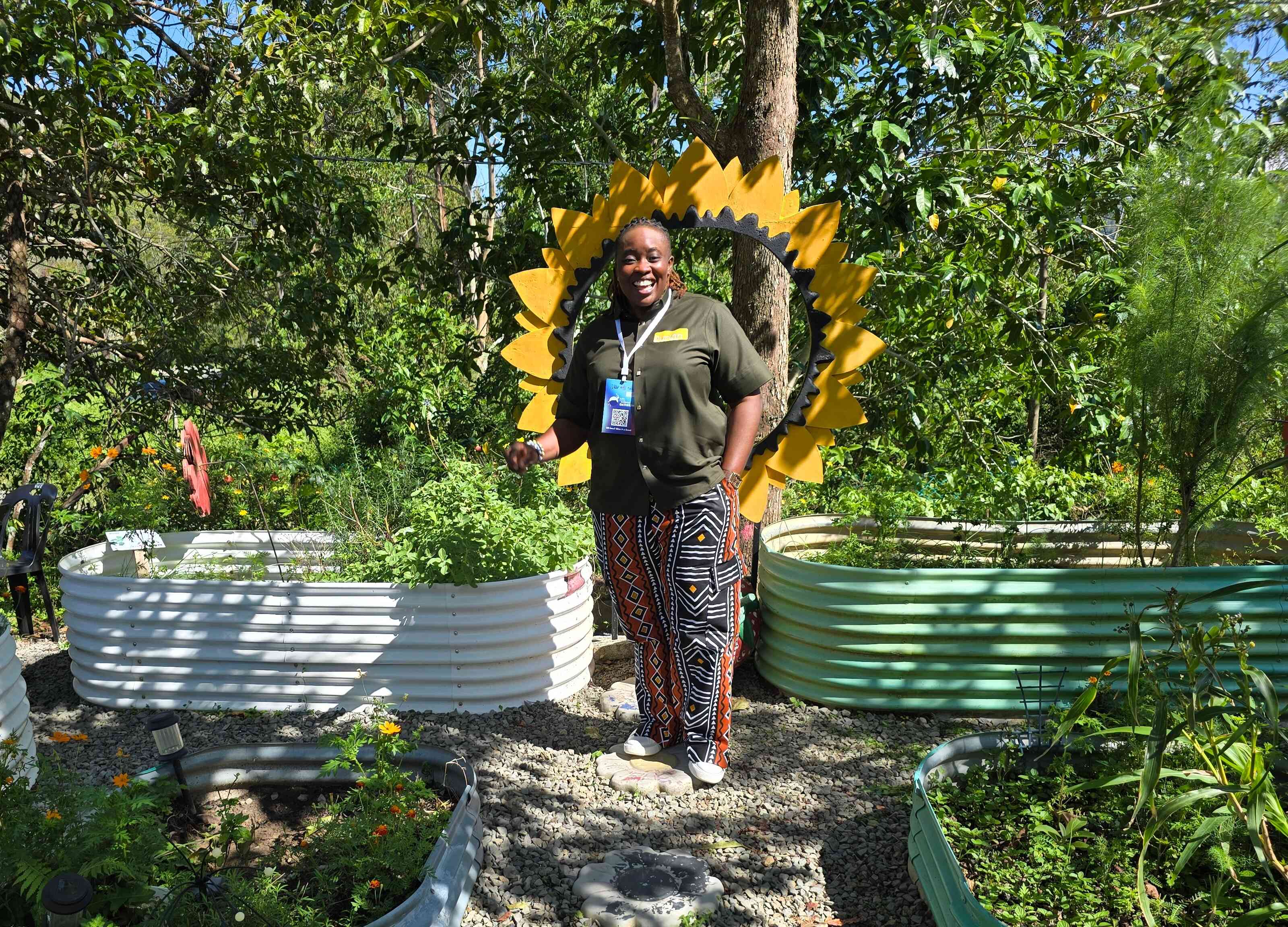
Tony Joy is the founder of Durian Nigeria, a social enterprise which supports rural communities to use their local resources to create wealth. She said visiting the social enterprises in Malaysia demonstrated how rural communities could generate sustainable income without submitting to “Westernisation” of their culture.
She said: “A lot of communities are dropping their cultural identities. They’re dropping their respect for the soil. Those are the things we use to protect our African nature, our African heritage. Communities like the ones we visited today, they have this idea of ‘this is our culture, we need to protect it, and then we need to infuse innovation into it’, which is amazing.”
Rural people are not data points. Rural people are humans with experiences. They are not just tools for research
The perspective of rural people is too often left out of conversations about their own future, believes Joy, in particular by international development agencies.
“I find it very disturbing that we keep having a conversation about climate change, climate resilience, adaptation, and you don't have rural people telling you their experiences on bigger tables. Rural people are not data points. Rural people are humans with experiences. They are not just tools for research,” she said.
Increasing women’s independence in traditional communities
In the village of Kampung Bundu Tuhan, Rural Social Enterprise Gathering delegates heard from Lipah Talib about how herbs and edible flowers social enterprise Dunowongi had enabled her to generate income as well as develop independence within her family.
She described how initially her husband hadn’t wanted her to work, expecting she would maintain the traditional role of mother, caregiver and running the household. But once she demonstrated she could bring in money for the family, he changed his mind.
Empowering local women in this way is a specific aim of Dumowongi, which was founded by Irene Mositol and her husband in 2022. Because the organisation’s own farm, based on community-owned land, is small, women are supported to grow produce at home, which Dumowongi then purchases from them.
A brightly coloured hopscotch path welcomes visitors into the Dumowongi centre, evidence that women are welcome to bring their children to work while they tend the plants, make products or join training sessions.
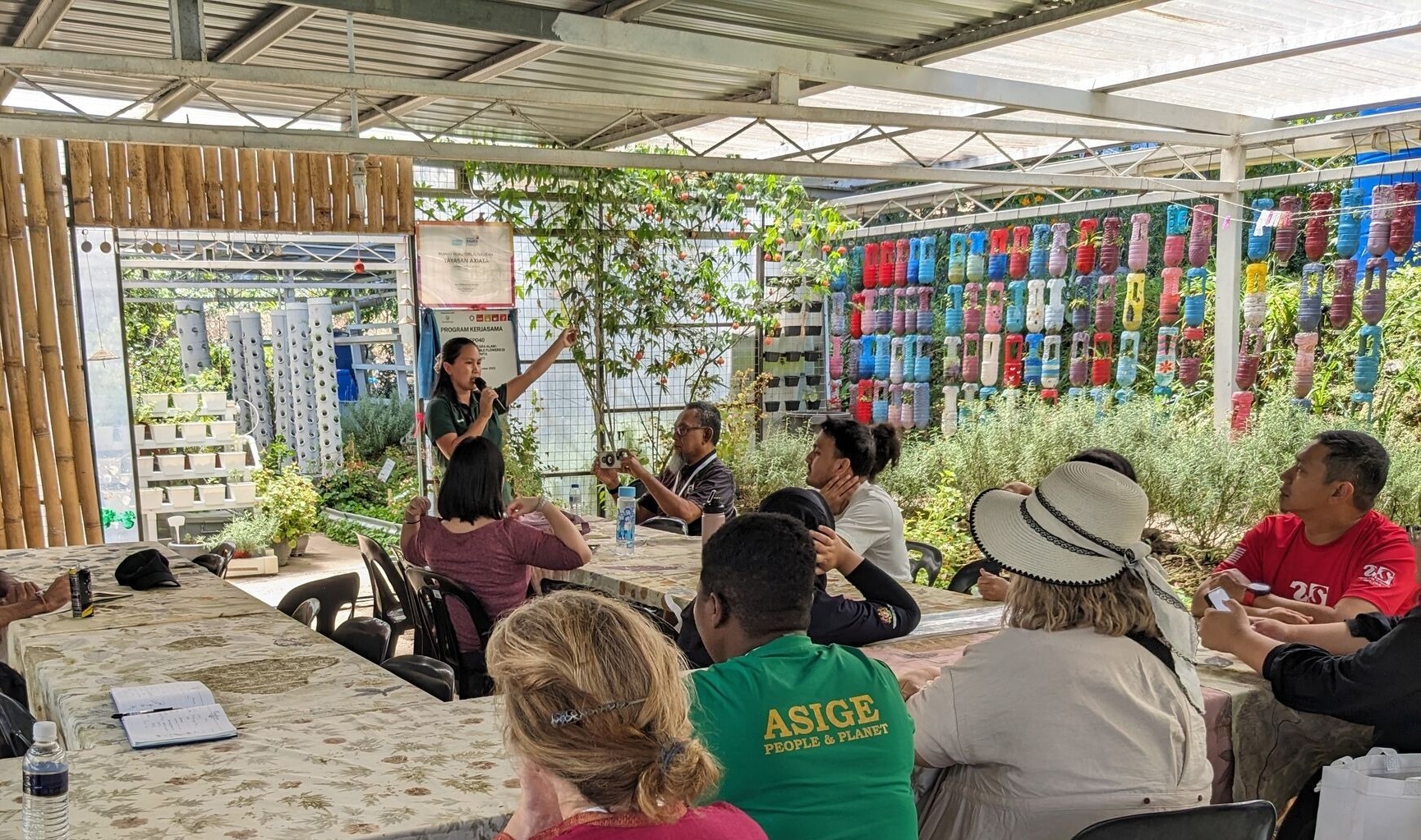
In addition to selling their herbs and edible spices wholesale to cafes, hotels and bakeries, Dumowongi makes wellness products from the plants it grows. It also makes upcycled products like laptop cases, hair scrunchies and bags.
Dumowongi doesn’t just focus on plants that typically grow locally. Realising the area had ideal growing conditions, the organisation introduced rosemary, to sell as a herb and include in wellness products like soap. Now, it grows so well and the community embraced it so enthusiastically, they have a surplus, so they are designing new products to make use of it.
To date, Dumowongi has trained 70 women in farming and product creation, with 48 currently active with the organisation. To extend the organisation’s impact, Mositol is designing a product innovation training programme, with the aim of piloting it next year with 20 women.
Mositol said: “We want them to become entrepreneurs, to have their own bank account, their own brand. That’s our goal for this community.”
Josh Stoltz is executive director of Grow Benzie, a rural prosperity incubator which provides organisational support and community space for rural nonprofits, collaborative bodies and social enterprises in Benzie County, Northwest Lower Michigan, USA.
Stoltz said the visits in Sabah showed that social enterprises in the area had a keen focus on generating revenue and financial sustainability from launch, whereas in the USA he felt there is a “start-up for non-profits mentality”, which comes with an over-reliance on grant funding.
He said: “The major difference is the taxes. The [US] tax system is set up to reward small nonprofits, whereas here small entrepreneurs are recognising that they can match the social need with an economic need, and they do that from the beginning. That’s very admirable and something that I want to take back to the United States, to recognise that sustainability starts at the beginning of any sort of social movement.”
“You have to be willing to take a step back and compromise”
At the one-day Rural Social Enterprise Gathering Forum on Monday 3 November, Michelle De La Harpe, founder of Malaysian eco-tourism social enterprise Meraki Daat, took part in a session on fostering rural culture and heritage via tourism.
Meraki Daat supports water villages — communities made of homes built on stilts above the water, primarily populated by Indigenous communities — in Sabah. Not being from the water village community, De La Harpe emphasised the need for patience, understanding and compromise for ‘outsiders’ wanting to collaborate with rural communities.
“You may have a good education, but what does that mean to them, versus people who have lived on the ocean for hundreds of years and they survived until today? You have to be willing to take a step back and compromise,” she said.
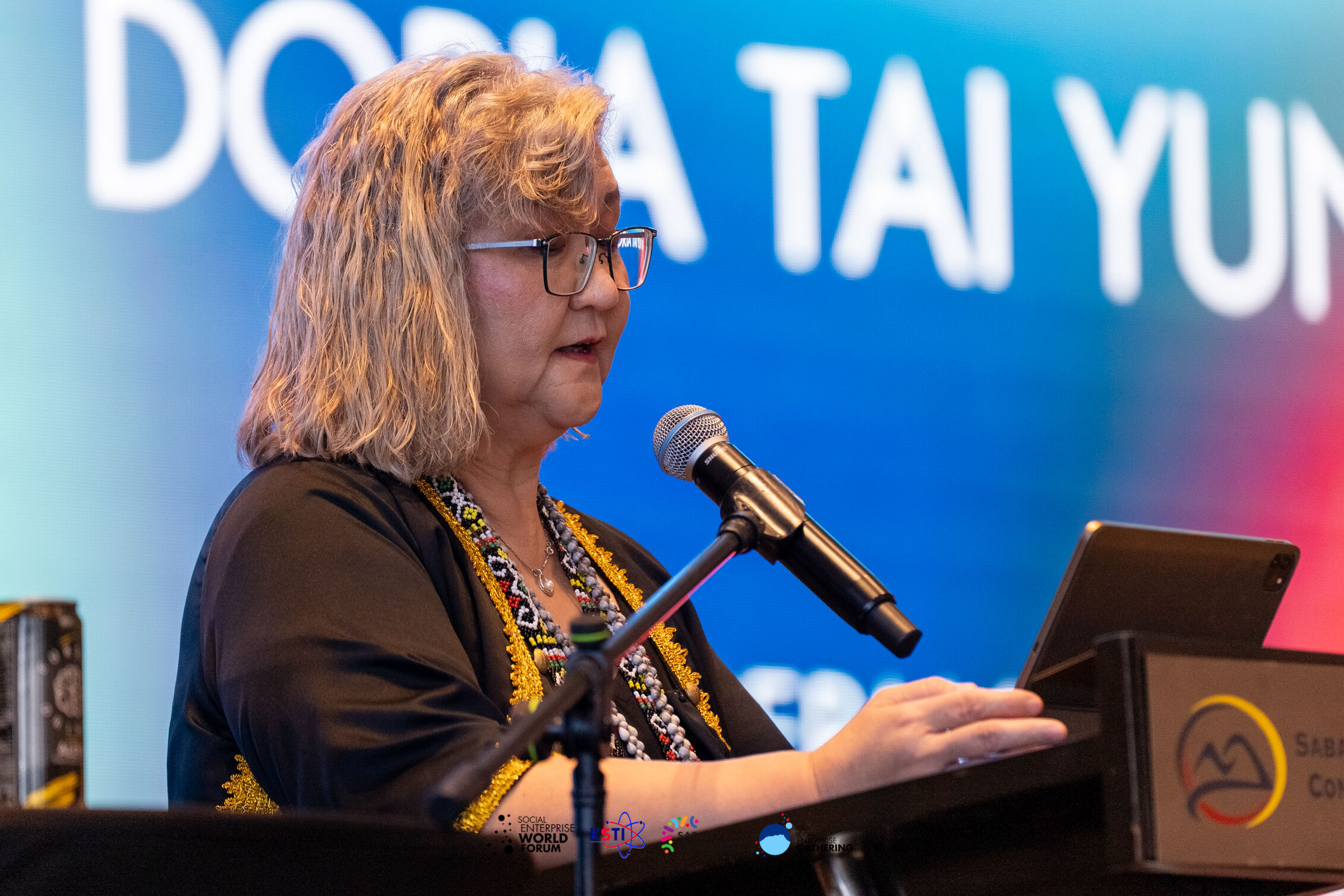
In her opening address to the Rural Social Enterprise Gathering Forum, Doria Tai Yun Tyng, deputy permanent secretary of the Sabah state Ministry of Science, Technology and Innovation said the visits to Sabah social enterprises were a reminder that impact was not just measured by profit alone and showcased the passion and creativity of social entrepreneurs in the state.
She said: “Each of these leaders represent the heart of our rural innovation, turning local challenges into potentially global opportunities and inspiring all of us to do more together.”
Top image: Anjelen Daransun, founder of Kokoriu, gives Rural Social Enterprise Gathering delegates a tour of the community farm
| Ready to invest in independent, solutions-based journalism?
Our paying members get unrestricted access to all our content, while helping to sustain our journalism. Plus, we’re an independently owned social enterprise, so joining our mission means you’re investing in the social economy. |


